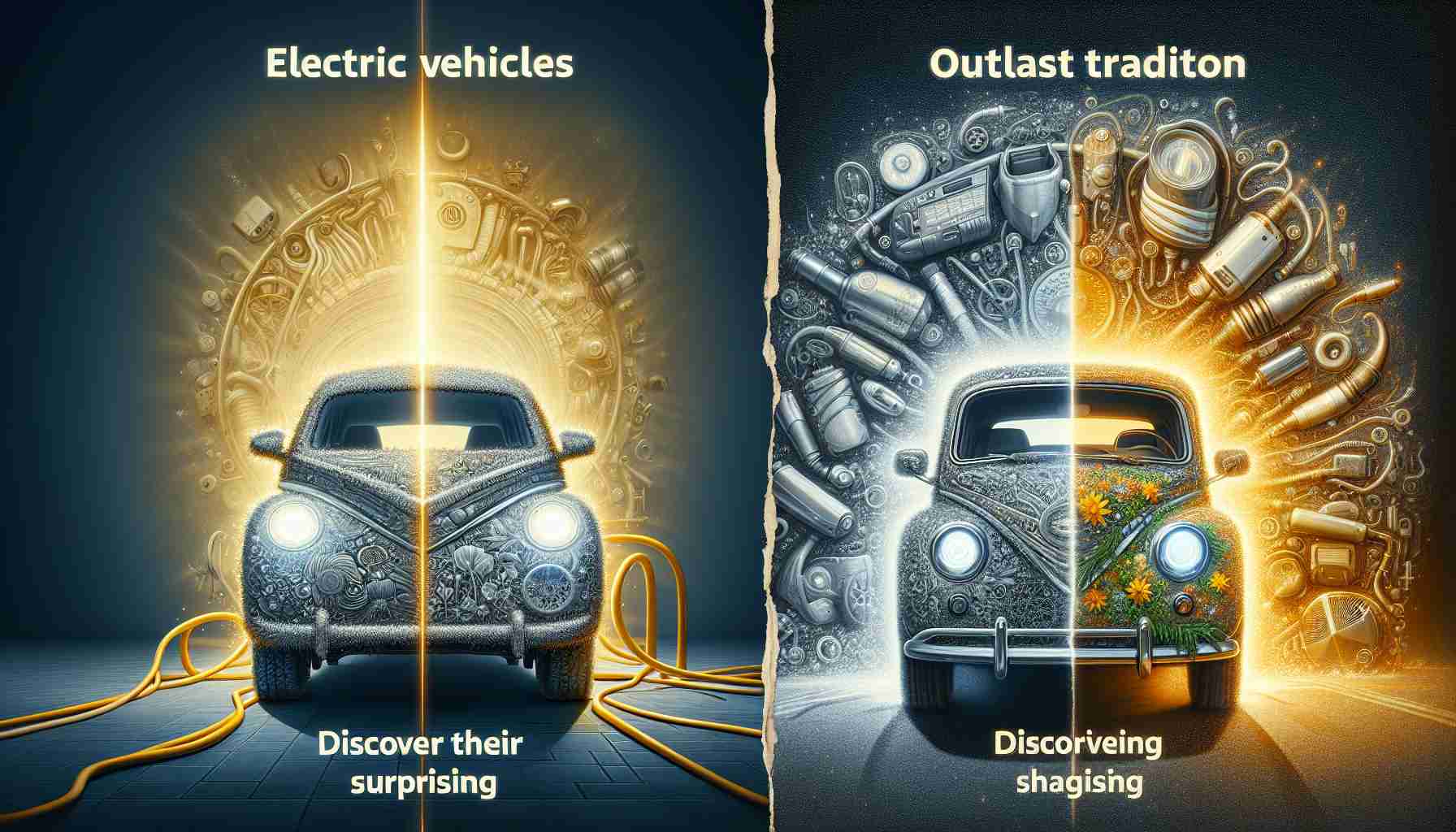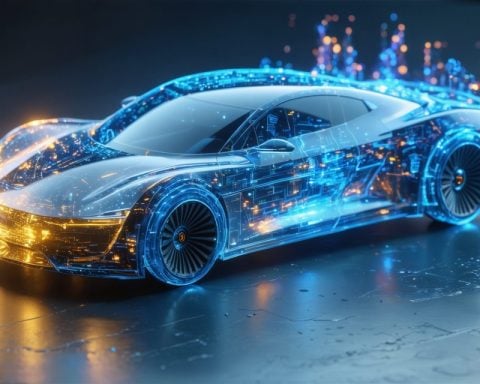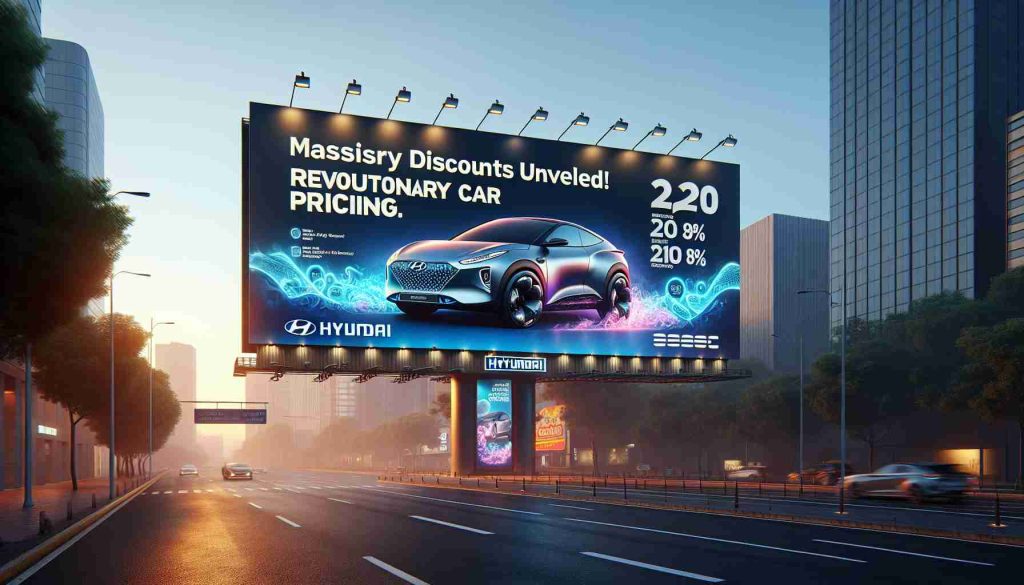EV Longevity Matches Internal Combustion Engine Cars
A recent comprehensive study reveals that electric vehicles (EVs) have dramatically improved in terms of longevity, now matching internal combustion engine (ICE) vehicles with a lifespan of approximately 18 years.
This research, conducted across various regions, highlights the durability and reliability of modern electric vehicles, dispelling previous concerns about their long-term viability. The advancement in battery technology plays a pivotal role in this newfound resilience, as manufacturers focus on enhancing performance and scaling up production capacity.
As consumers increasingly shift towards sustainable transportation, the finding that EVs can now endure as long as traditional vehicles may encourage more people to transition to electric models. Factors contributing to this extended lifespan include improvements in battery chemistry, better overall vehicle design, and effective maintenance strategies.
The implications of such longevity are substantial, not just for car owners but also for the environment, as longer-lasting vehicles mean fewer emissions and reduced waste. Enthusiasts and skeptics alike are taking notice of this data, reinforcing the idea that electric cars are a smart choice for both pockets and the planet.
As the automotive landscape continues to evolve towards electrification, it is clear that EVs are not only here to stay but are becoming increasingly competitive with their gasoline counterparts in terms of lifespan and reliability.
The Broader Implications of EV Durability
The emergence of electric vehicles (EVs) matching the longevity of internal combustion engine (ICE) cars marks a significant turning point in the transition to sustainable transportation. This advancement not only impacts consumer choices but also carries profound implications for society, culture, and the global economy. As consumers embrace EVs, the shift contributes to a growing culture of sustainability, redefining what it means to own a vehicle. More individuals are prioritizing eco-friendly options, fostering a community that values environmental stewardship.
Additionally, the extended lifespan of EVs is tied intricately to economic factors. The automotive industry may witness a transformation in market dynamics, with increased competition driving innovation. As EV technology continues to advance, the potential for job creation in manufacturing, charging infrastructure, and battery recycling becomes evident. Reports estimate that the global EV market could surpass $800 billion by 2027, signaling extensive economic benefits.
On an environmental level, the implications are equally critical. The longer lifespan of EVs translates to a decrease in manufacturing turnover and less waste in landfills, addressing concerns about battery disposal and resource extraction. Furthermore, as EV adoption grows, urban air quality may improve significantly, reducing health risks linked to vehicle emissions.
Looking to the future, the trend of electrification is poised to reshape mobility. As technological advancements further enhance battery performance and efficiency, we may soon see vehicles with even longer lifespans, potentially curbing carbon footprints significantly. The longevity of EVs represents not just a triumph for automotive engineering but a crucial step toward a more sustainable and environmentally conscious society.
Electric Vehicles: The New Age of Longevity and Sustainability
Introduction
A groundbreaking study has unveiled that electric vehicles (EVs) now boast a lifespan comparable to that of internal combustion engine (ICE) vehicles, lasting approximately 18 years. This significant development reflects remarkable advancements in technology and manufacturing processes, ensuring that EVs not only meet the demands of modern consumers but also the sustainability goals of the future.
Key Findings
Improved Battery Technology
One of the foremost elements contributing to the longevity of electric vehicles is the substantial improvement in battery technology. New advancements in battery chemistry and design enhance energy density, efficiency, and life cycles. As companies invest in research and development, the result is a more reliable power source that supports longer usage periods.
Vehicle Design and Durability
Modern electric vehicles are engineered with durability and longevity in mind, causing a shift in traditional manufacturing practices. The design processes incorporate lightweight materials and innovative engineering to reduce wear and tear, further extending the life of the vehicle.
Maintenance Strategies
Effective maintenance practices have also evolved within the EV sector. Many manufacturers offer comprehensive maintenance packages that focus on the unique needs of electric vehicles, ensuring that they remain in top condition throughout their lifespan. Regular software updates and battery health checks are strategic interventions that enhance performance longevity.
Pros and Cons of Electric Vehicle Longevity
Pros
1. Environmental Benefits: Longer-lasting vehicles result in reduced waste and lower emissions over time.
2. Financial Savings: EVs tend to have lower operational costs due to less maintenance and fewer moving parts, culminating in long-term savings for consumers.
3. Market Competitiveness: With comparable lifespans to ICE vehicles, EVs are increasingly competitive, attracting more consumers to electric models.
Cons
1. Initial Costs: The upfront cost of electric vehicles can still be higher than traditional vehicles, although this is offset by savings over the lifespan.
2. Battery Replacement: Although they last long, batteries may eventually need replacement, which can be costly.
3. Charging Infrastructure: In some regions, the lack of adequate charging infrastructure may deter potential buyers despite the longevity of the vehicles.
Future Trends and Insights
Shift towards Sustainability
As consumer awareness of sustainability increases, the demand for electric vehicles is expected to rise. The idea that EVs can last as long as traditional vehicles aligns with environmental goals, potentially influencing purchasing decisions worldwide.
Innovations in Battery Recycling
The development of effective battery recycling methods is imperative for sustainability in the EV market. Companies are investing in innovative recycling technologies to ensure that the materials used in batteries are reused, minimizing environmental impact.
Predictions for Market Growth
Analysts predict exponential growth in the electric vehicle market over the next decade, driven by advancements in technology and changing consumer preferences. This growth indicates a shift toward more environmentally friendly transportation options and may redefine automobile longevity standards.
Conclusion
The recent findings on electric vehicle longevity not only debunk myths regarding their lifespan but also highlight the importance of sustainable practices in the automotive industry. As electric vehicles continue to match and even exceed the lifespans of their ICE counterparts, they present a compelling case for transition towards eco-friendly transportation solutions.
For more detailed information about electric vehicles and their evolving landscape, visit Edmunds.
















